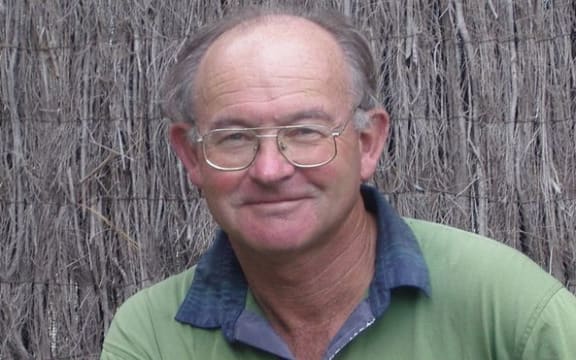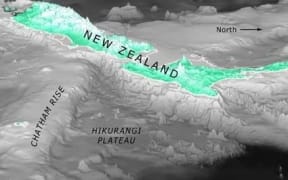Shares in Chatham Rock Phosphate have plunged after it was refused a marine consent to mine phosphate from the Chatham Rise seabed.
The decision by the Environmental Protection Authority (EPA) was released this morning.
Read the full decision by the EPA (PDF, 3.4MB)

Chatham Rock Phosphate chief executive Chris Castle Photo: SUPPLIED
The company wanted to mine three 10 square kilometre blocks per year; mining would have been at depths of up to 450 metres.
The authority's decision said the mining would cause significant and permanent adverse effects on the seabed environment. There would have been destructive effects from the extraction process, as well as from the deposit of sediment from the mined area.
The authority's general manager of assessments, Sarah Gardner, said mining would destroy the protected stony corals unique to the area.
"The picture is that the seabed would be changed so it couldn't return to what the environment is now.
"If there's life present that relies on the phosphate nodules or the stony substrate that's present, and that's removed, then that life would not regenerate in the same way."
The authority said the economic benefit to New Zealand of mining the area would be modest, at best.
The company's shares fell as low as 1 cent each this morning from 20 cents yesterday.
Chatham Rock Phosphate chief executive Chris Castle said he was aghast at the decision which he said was a seriously negative signal for New Zealand business.
Most of the $33.5 million the company had raised had been invested in the mining application process.
"We are disappointed and I think probably more worried about the wider impact of this - both in international marine mining and also for investor perception overseas of how possible it is to do things in New Zealand."
Straterra chief executive Chris Baker told Checkpoint any mining project has a level of uncertainty, and the decision shows the act governing the Exclusive Economic Zone (EEZ) and continental shelf is flawed.
"The act doesn't deal with that uncertainty well enough. The guidelines may be - elements of the act itself need to be changed to enable a project like a mining project, that inherently has uncertainty, to be dealt with in a responsible way."
Last month, Chatham Rock Phosphate said it expected to pay annual royalties of $US6.9 million, and $US17.4 million a year in income tax, and that the project would earn after-tax profits of $US673 million over its estimated 15-year life.



